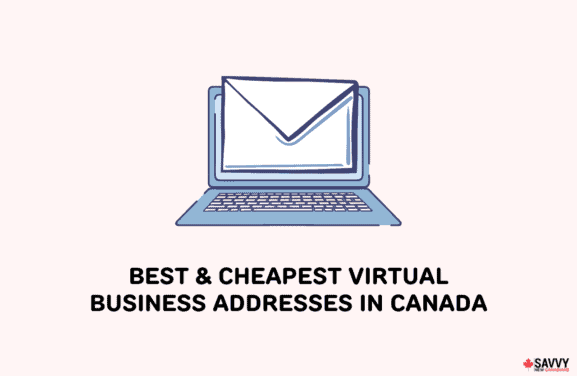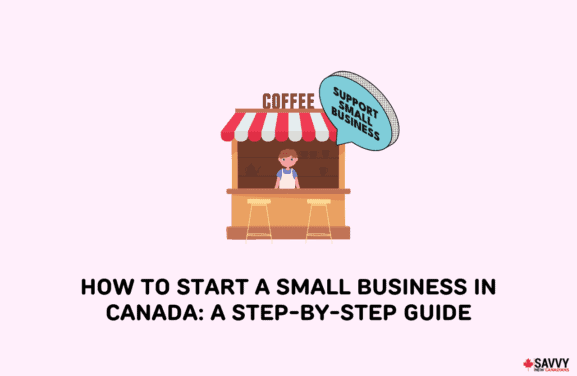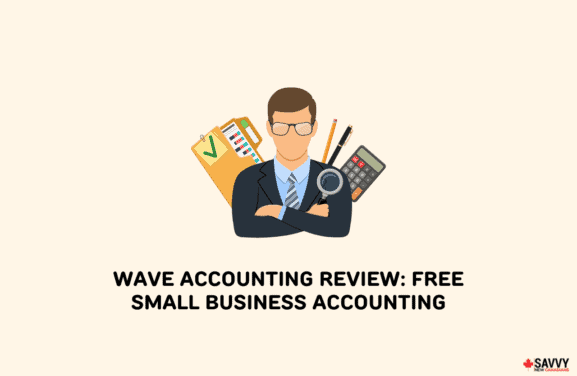If you need help to start or grow your business, the Canada Small Business Finance Program (CSBFP) helps small businesses get approved for loans by sharing the risks with the lending financial institutions.
According to official reports, CSBFP has helped more than 53,000 small businesses to buy or improve their business assets. In the last decade alone, CBSFP loans totalled over $10 billion.
Key Takeaways
- Whether you are a startup or an established small business, you can get a term loan of up to $1 million and a maximum line of credit of $150,000 through the Canada Small Business Finance Program.
- This federal government program helps small businesses qualify for increased loans and better loan repayment conditions to finance their companies or business equipment.
- However, it’s still up to the financial institution or lender to approve or decline your loan request since it’s their money and not the government’s.
Canada Small Business Financing Program Overview
Industry Canada established the Canada Small Business Financing Program in 1961. It was created to smoothen the process of getting loans from financial institutions by sharing the risk with the lenders.
The CSBFP is meant to help new and established small businesses. You apply for the loan through your usual lenders like Bank of Montreal or ATB Financial, and the government acts as your guarantor. Depending on the assets you want to finance, your bank will then determine if CSBFP is right for you.
Also, it’s the bank’s obligation to register your loan with Innovation, Science and Economic Development (ISED) Canada to ensure it’s covered. However, keep in mind that not all banks participate in this program, and it’s up to individual lenders to decide if they want to join the list of lenders participating in the CSBFP.
How Much You Can Receive From the Canada Small Business Financing Program
The maximum amount you can receive under the Canada Small Business Financing Program is $1.15 million, which includes $1 million for term loans and $150,000 for lines of credit.
However, it’s up to you to negotiate with the lender to get the right amount for your business. You can access loans under the CSBFP through banks, credit unions, and caisses populaires, among other financial institutions.
Remember, if you receive the maximum $1 million term loan, you can use no more than $500,000 to purchase leasehold improvements or improve leased properties, or purchase or improve new or used equipment.
Eligibility For the Canada Small Business Financing Program
Eligible borrowers include new and established small businesses with gross annual revenues of $10 million or less.
Besides this primary condition, your business must satisfy other requirements:
- Be based in Canada with its assets held in Canada to do business here,
- Offer its services or products to the public, whether retail or wholesale,
- Though the business’ gross annual revenues shouldn’t exceed $10 million, there are no restrictions to the principal of your business.
- A borrower with another company can incorporate a new, smaller business into this company, and their new business will be eligible for the CSBFP loan.
- Farming businesses are not eligible under this program, but if your company provides services to farmers, such as harvesting, you may obtain a loan under the program.
The term loan you receive can be used for:
- Purchasing or improving real property for your business
- Purchasing or improving new or used equipment
- Intangible assets
- Paying the CSBFP registration fee
However, you can’t use the term loan for farming businesses. Farmers and agricultural co-operatives may be eligible for the Canadian Agricultural Loans Act (CALA) Program. Other ineligible expenses include:
- Borrower’s labour,
- Repaying pre-existing term loans or lines of credit
- Acquisition of shares
- Vendor take back financing
On the other hand, CSBFP’s lines of credit can be used for working capital costs or day-to-day operations.
How to Apply For the Canada Small Business Financing Program
As mentioned, the government is a guarantor, and your loan approval comes from the lenders or financial institutions — like any other conventional loan.
You don’t have to contact Innovation, Science, and Economic Development (ISED) Canada. Just present your business plan to an approved financial institution and negotiate with the bank for a loan limit. The decision to approve a loan lies squarely with the bank.
If the financial institution approves your loan, they will give you the funds and register it with ISED.
Interest Rates
The interest rates for term loans depend on your lender and may be floating or fixed. The maximum chargeable for floating is the lender’s prime lending rate plus 3%, while the maximum chargeable for fixed is the lender’s single-family residential mortgage rate for the term of the loan plus 3%.
On the other hand, for lines of credit, the maximum chargeable interest is the lender’s prime lending rate plus 5%.
Term rates
Currently, the maximum term or the length of government coverage for a real estate secured loan is 15 years. However, in this case, the repayment can be amortized for more than 15 years.
For non-real estate secured loans, the maximum term is 15 years.
On the other hand, for CSBFP lines of credit, the maximum term is 5 years. At the end of this term, you can repay completely and close, re-register the line of credit for 5 more years, or convert it to a CSBFP term loan with a term that adds 10 more years.
Registration fees
CSBFP’s registration fee for term loans is 2% of the total amount, while for lines of credit, the fee is 2% of the total amount authorized. Remember, if you choose to re-register or renew your line of credit after 5 years, you’ll pay an additional 2% registration before expiry.
As mentioned, since this loan is meant for startups, you can finance the registration fee with the loan.
Pros and Cons of the Canada Small Business Financing Program
The main advantage of this program is that it offers new startups or small established businesses access to funds they might not have.
The application process is also straightforward, especially if you have an established relationship with the lender. Also, the turnarounds may be faster, and you’ve more freedom and flexibility on how to use the funds you receive.
However, a lender may decline your loan request or give you a lower amount depending on your collateral, business plan, or credit history. Interest rates may also be higher and term rates shorter than other collateralized loans.
Alternative Small Business Loans in Canada
Alternative Financing
Alternative lending can offer greater flexibility than traditional bank loans when it comes to credit history, income, or business plans. For instance, merchant cash advances offer shorter terms and may include discounts if you pay early.
However, they come with higher registration fees and interest rates. They mostly suit people with low credit scores or cash flow issues.
Bank loans
The Canada Small Business Finance Program guarantees the lender up to 85% of the loan they disburse to a borrower. But if you qualify for a bank loan, you can take one and enjoy better interest rates, a range of repayment options, and tax-deductible interest rates.
On the downside, business loans may be difficult to secure, especially if your business doesn’t have a history of profitability or you don’t have a proper business plan.
Related: Farm Loans and Grants in Canada
Venture capital
A venture capital corporation or angel investor may be another alternative. They usually invest in startups or small businesses, and you can benefit from their experience and expertise.
However, unlike bank loans, you have to surrender ownership control.
Equipment Financing
This type of financing provides a loan to cover the cost of equipment or machine-related needs of your small business. It can help you access the latest equipment, gain a competitive edge, and preserve your working capital.
The downside is that you don’t have control over the use of these funds, and you’ll end up paying more for the equipment — you may even be servicing the loan after the equipment’s lifespan.
Who Should Apply For the Canada Small Business Financing Program
The CSBFP is great for startups and small businesses that want to inject more cash into their companies. If you feel your company would benefit from a loan ranging from $5,000 to $1 million or need to pay things like rent, CSBFP may be for you.
FAQs for Small Businesses
Like the Small Business Administration (SBA) loans in the US, this program makes it easier for startups and small businesses to access increased loans and terms, better loan conditions, and new classes of loans. If the lender approves your loan, the federal government guarantees up to 85%.
The Canada Emergency Business Account (CEBA) loan repayment date is still January 18, 2024. Businesses that repay their loan by that date may receive partial loan forgiveness (up to a third)
The best financing option for your startup depends on your income, history of profitability, credit score, and business plan, among other factors. Depending on your needs, you can go for a bank loan, the CSBFP, an angel investor, or even borrow cash from friends and family.
With the Canada Small Business Finance Program, you can get a term loan of up to $1 million and a line of credit of up to $150,000. However, the loan limit you receive depends on several factors, including how you negotiate with the financial institution.
Related:



